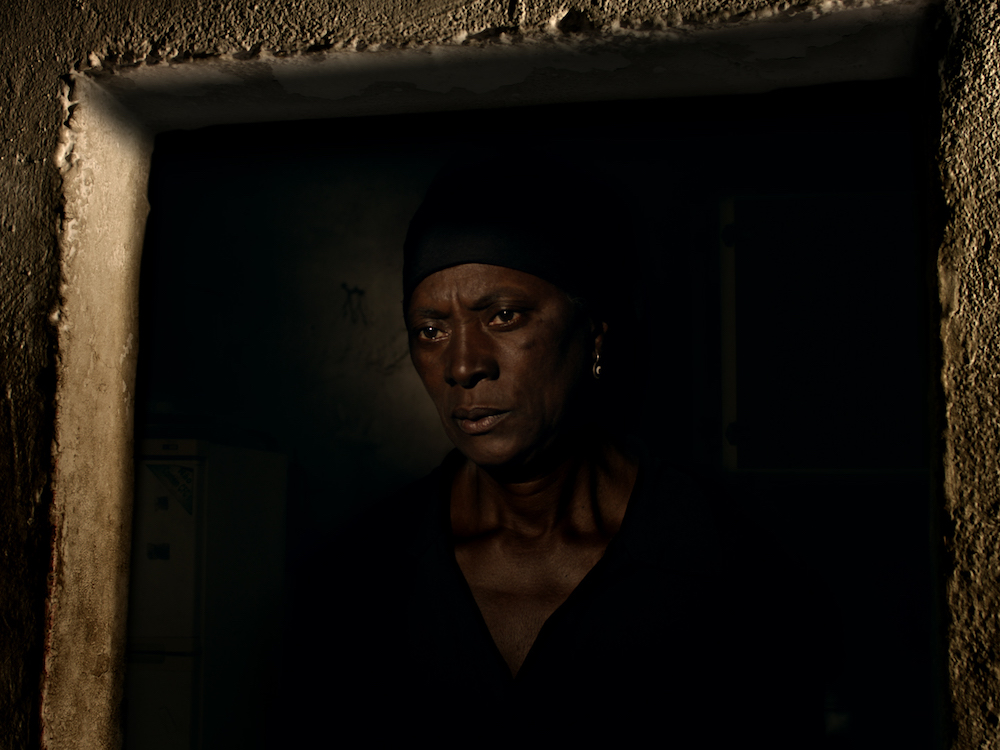I have been a fervent fan of Eimear McBride ever since I first read her debut novel, A Girl Is a Half-Formed Thing. Strange Hotel, her latest, does away with the stream-of-consciousness style she first became known for, but it’s no less recognizable in how it explores regret and memory. The plot is simple: A nameless woman checks into a hotel in Avignon, a hotel she’s been to before. She smokes, drinks too much, watches pornography on the hotel television. Her thoughts drift to all the hotel rooms she’s stayed in over the years, hotels all over the world. One hotel, in Austin, stands out; in that particular hotel, a particular man. McBride is skilled at the language of regret, the language of turning a situation over and over in your mind, suffusing it with an increasingly deflated sense of possibility. And for the reader, this is a novel to be mulled over long after it has ended. —Rhian Sasseen
In George Sluizer’s 1988 film The Vanishing, a young Dutch couple named Saskia and Rex drive through the French countryside on holiday. When they stop at a gas station, Saskia runs in to grab some drinks; she never comes out. Out of the many, many films I’ve watched in the past seven weeks, this is not one of the more joyful. But it is the one I’ve found myself thinking about nearly daily since viewing. The Vanishing captivates like a classic thriller but leaves you thoughtful in ways that Basic Instinct may not. The film is an examination of the ways in which hope can be dangerous; Rex never stops searching for Saskia, his life consumed with questions of what happened to her. Although the film spans languages (both Dutch and French), countries, and years, it remains profoundly claustrophobic, owing in part to the plot but mostly to the small cast of exceptional actors. Gene Bervoets and Johanna ter Steege as Rex and Saskia are transformed from a bickering couple to adoring lotus-eaters to two people ripped apart by unimaginable cruelty within a mere twenty minutes. Bernard-Pierre Donnadieu’s quiet but deeply terrifying performance has stuck to my bones, creating a Pavlovian shiver whenever he comes to mind. If I haven’t made the film sound like a treat to watch, that’s because it’s not, at least in the traditional sense. Sluizer builds dread like a mastermind, composing shots lit by neon browns and purples so drenched in rain they’d look at home in a nightmare impressionist painting. Layered atop it all is Henny Vrienten’s eerie electronic soundtrack. Watch this film early in the evening so you can palate cleanse with something cheerful afterward—you’ve got time. —Eleonore Condo
These days I leave my apartment only rarely, and when I do it seems like New York is actively resisting the idea of summer. So even for a creature entirely of the East Coast, there has been something particularly beguiling about the latest season of Insecure: those wide-open California landscapes, the sunshine, a strange world in which people talk to each other, touch each other, gather together. At this point it feels almost like a fantasy universe, but Insecure is one of the realest, most forthright shows on TV. This season trains that candor on an increasingly strained friendship between Issa and Molly, showing each hairline fracture and how it might explode. Ever since the first line—Issa on the phone with someone we don’t know, saying, “Honestly, I don’t fuck with Molly anymore”—I’ve been holding my breath, hoping that by the time the season ends they’ll have put themselves back together. —Hasan Altaf
On Sunday night, the pianist Serene sat before her instrument in a dimly lit room, ready to perform the most recent installment of Fever’s Candlelight Concert series online. The floor was covered in candles as promised, and her piano was situated between a brick fireplace and glass doors that looked out onto the night. To match her dark outfit and elegant frame, Serene played a Bogányi piano, a blue-black structure that looks like it could have been built by Noguchi. In fact, it was conceived by the Hungarian designer Péter Üveges and equipped with a carbon fiber soundboard, making for a clear and resonant sound. After opening with Ravel and Chopin, Serene performed the aria from Goldberg Variations. She worked the keys with an Apollonian restraint, her two hands playing together as if in casual conversation. A pairing of sonatas by Beethoven followed—No. 8, Op. 13, “Pathétique,” composed in his early career, and No. 32, Op. 111, composed after significant hearing loss. Serene urged that we consider Beethoven a master of improvisation—a designation not commonly given to classical composers. But she drove the point home with swinging tempos and athletic trills, positing Beethoven as a classical antecedent to jazz. Then came Liszt and Gershwin, and the concert concluded with a heartening round of Rhapsody in Blue. I last heard Rhapsody on a summer evening in Central Park, the New York Philharmonic playing as fireworks boomed above the southern skyline. Unsurprisingly, Serene performed a spectacle to match. Watching Serene play is like watching Jackson Pollock paint; she lifts her hands high and strikes the keys with intention, producing an ordered and harmonious spattering of notes. Her next performance with Fever will be streaming on May 24. —Elinor Hitt
Vitalina Varela appears, silhouetted and barefoot, at the open door of an airplane, awaiting a stair car. She descends, to be met with condolences from a group of women on the tarmac. She has waited thirty years for a plane ticket to Portugal, but her husband, who left her in Cape Verde, died three days earlier and has already been buried. There is nothing here for you, she is told—go home. It is a sentiment that she encounters repeatedly in Lisbon. A priest, himself from Cape Verde, tells her the memory of her husband’s immigrant life—“it’s poison!” Why are you taking their side? she asks. She sits alone, unwelcome in her husband’s ill-fitting house, and declares she will die in Portugal. Specters abound. In this film that bears her name, Vitalina Varela plays herself, tells her story, and shares a screenwriting credit with the director, Pedro Costa. (The film is streaming from the distributor’s website; profits are split with a cinema of your choice.) Portugal’s legacy of dispossession, colonial violence, and marginalization is everywhere apparent and persistent. Over the years, Costa has made a series of films about the inhabitants of Fontaínhas, an impoverished district of Lisbon, that also chart the neighborhood’s destruction. Now his films seem to take place in a nocturnal netherworld. Neither documentary nor fiction, they have little interest in delineating reality from imagination, dream from memory, or the stories people tell about lives from the lives they lead. Vitalina Varela is glacial and remote, like Europa; it is so much an art film that when I saw it in the cinema, I could hear furious scribbles in a notebook above my neighbor’s gentle snores. There is little continuity or sense of space. People do not converse; they offer testimonies and recite dates, expenses, detritus. It is also a film of flabbergasting beauty. Much of the time is spent with Varela in darkness, yet the film never allows for the easy illusion of empathy or understanding—rather, we see her solitude without intruding upon it. The style might impose a cruel despair, the stillness a complacency, were it not for Varela’s sublime performance and a conclusion that adopts her own faith in grace—a gesture of solidarity and an emergence into the light. —Chris Littlewood
from The Paris Review https://ift.tt/2y58YXQ



Comments
Post a Comment